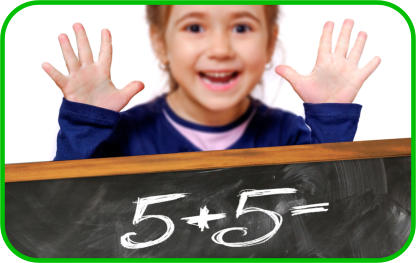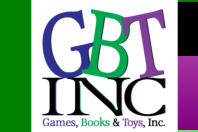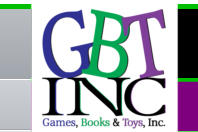News Story
In Search of the Smart Preschool Board Game
What studies reveal about the link between games and math skills by Gwen Dewar, PH.D.. Call it preschool board game syndrome These are the games that are determined entirely by chance. Kids roll dice, or spin a spinner, and move their game tokens around a board. There are no decisions to make, no strategies to discover, and parents find them horribly, terribly, mind-bogglingly tedious. But, we play them anyway. And for good reason, I think. Math skills and the preschool board game There is evidence that certain kinds of board games boost preschool math skills. And these early skills are strongly predictive of math achievement scores later in life (Duncan et al 2008). For instance, consider the research of Geetha Ramani and Robert Siegler (2008). Ramani and Siegler asked preschoolers (average age: 4 years, 9 months) to name all the board games they had ever played. The more board games that a kid named, the better his performance in four areas: • Numeral identification • Counting • Number line estimation (in which a child is asked to mark the location of a number on a line) • Numerical magnitude comparison (in which a child is asked to choose the greater of two numbers) The same relationship was found for the number of settings in which kids played board games. Kids who played board games in multiple places (e.g. their own home and the home of a friend) performed better on all four math tasks. Similar results were associated with video games and card games, but to a much lesser degree. Kids who played more video games or card games performed better in only one of the four areas of mathematical knowledge (Ramani and Siegler 2008). Are these gains important? You bet. When kids can identify numerals quickly, they have more working memory available to devote to solving math problems (Geary 2006). Good counting skills are linked with better arithmetic performance (Geary et al 1992; Siegler 1988). And the last two areas -- number line estimation and numerical magnitude comparison--are crucial forthe development of “number sense,” a fundamental ingredient of intelligent, mathematical reasoning (Dehaene 1997). Why is there a link between playing board games and scoring well on math tests? It might be related to socio-economic status. In the study mentioned above, middle-class kids reported playing more board games than did low- income kids. By contrast, low-income kids played a greater variety of video games (Ramani and Siegler 2008). It might also reflect greater parental involvement. It’s hard for a child to play a preschool board game by himself. By contrast, most preschool video games require little or no parental participation. But Siegler and Ramani argue that it has to do with the specific tasks associated with preschool board games. They point out that some games seem tailor-made to teach a variety of mathematical concepts. Learning about the number line: The “Chutes and Ladders” -- style preschool board game Consider a board game like Chutes and Ladders. In this game, players move their game tokens through a series of consecutively-numbered spaces. The game board is essentially a number line, and kids who play the game are exposed to multiple cues about the increasing magnitude of numbers on the line. For instance, the spaces marked with higher numbers are physically farther along the number line (i.e., distant from the starting point of the game). These spaces may also require more moves and more time to reach. Thus, argue Ramani and Siegler, such games help kids develop an intuitive sense of numerical magnitude. In support of their idea, Siegler and Ramani found that kids who reported familiarity with Chutes and Ladders were better at identifying numerals and interpreting number lines. They were also less likely to make mistakes during counting. But correlation doesn’t prove causation. The best way to establish causation is to perform experiements, and that’s what Siegler and Ramani did. Experimental evidence Ramani and Siegler created their own number-based preschool board game and tested it on American, low-income preschoolers. In this study, kids were assigned to one of two groups. The math group was taught a preschool board game with consecutively-numbered squares. The color groups was taught a similar game that differed in only one respect--the game board squares varied by color instead of number. Over a two week period, kids participated in four game sessions of 15-20 minutes each. Researchers tested children’s numerical skills before and after the intervention. The results were clear cut. Kids who played the math-based preschool board game improved in each of the four tasks tested (numerical identification, counting, number line estimation and numerical magnitude comparison). The kids who played the color-based preschool board game showed no improvement (Ramani and Siegler 2008). Moreover, the gains were long-lasting. When the same kids were tested 9 weeks later, they were still exhibiting superior math skills. Researchers working in Scotland have reported similar results (Whyte and Bull 2008). Finding the right preschool board game Siegler and Ramani make a compelling case. So the next question is: What board games are most likely to benefit your child? The research suggests that Chutes and Ladders might help kids learn about the relative magnitude of numbers, but I don’t think this preschool board game is a good place to start. Chutes and Ladders is a lot more complicated than the game created by Ramani and Siegler. In fact, I’d argue that the design of Chutes is likely to confuse and frustrate many young children. So I think it’s better to begin with the same game that Ramani and Siegler used in their experiments. For details on how to create this simple preschool board game, see my article on preschool math games. There you will also find my analysis of Chutes and Ladders, with advice about how to determine if your child is ready for this game. In addition, check out these Parenting Science review of board games for young children, which include these excellent cooperative board games. You might also be interested in this guide to preschool math activities (which includes some number games) and my research-based guide to board games for kids. (Return to News)



© 2013 Games, Books & Toys, Inc.
All Rights Reserved
News Story
In Search of the Smart Preschool
Board Game
What studies reveal about the link between games and math skills by Gwen Dewar, PH.D.. Call it preschool board game syndrome These are the games that are determined entirely by chance. Kids roll dice, or spin a spinner, and move their game tokens around a board. There are no decisions to make, no strategies to discover, and parents find them horribly, terribly, mind-bogglingly tedious. But, we play them anyway. And for good reason, I think. Math skills and the preschool board game There is evidence that certain kinds of board games boost preschool math skills. And these early skills are strongly predictive of math achievement scores later in life (Duncan et al 2008). For instance, consider the research of Geetha Ramani and Robert Siegler (2008). Ramani and Siegler asked preschoolers (average age: 4 years, 9 months) to name all the board games they had ever played. The more board games that a kid named, the better his performance in four areas: • Numeral identification • Counting • Number line estimation (in which a child is asked to mark the location of a number on a line) • Numerical magnitude comparison (in which a child is asked to choose the greater of two numbers) The same relationship was found for the number of settings in which kids played board games. Kids who played board games in multiple places (e.g. their own home and the home of a friend) performed better on all four math tasks. Similar results were associated with video games and card games, but to a much lesser degree. Kids who played more video games or card games performed better in only one of the four areas of mathematical knowledge (Ramani and Siegler 2008). Are these gains important? You bet. When kids can identify numerals quickly, they have more working memory available to devote to solving math problems (Geary 2006). Good counting skills are linked with better arithmetic performance (Geary et al 1992; Siegler 1988). And the last two areas -- number line estimation and numerical magnitude comparison--are crucial forthe development of “number sense,” a fundamental ingredient of intelligent, mathematical reasoning (Dehaene 1997). Why is there a link between playing board games and scoring well on math tests? It might be related to socio-economic status. In the study mentioned above, middle-class kids reported playing more board games than did low-income kids. By contrast, low-income kids played a greater variety of video games (Ramani and Siegler 2008). It might also reflect greater parental involvement. It’s hard for a child to play a preschool board game by himself. By contrast, most preschool video games require little or no parental participation. But Siegler and Ramani argue that it has to do with the specific tasks associated with preschool board games. They point out that some games seem tailor- made to teach a variety of mathematical concepts. Learning about the number line: The “Chutes and Ladders” -- style preschool board game Consider a board game like Chutes and Ladders. In this game, players move their game tokens through a series of consecutively-numbered spaces. The game board is essentially a number line, and kids who play the game are exposed to multiple cues about the increasing magnitude of numbers on the line. For instance, the spaces marked with higher numbers are physically farther along the number line (i.e., distant from the starting point of the game). These spaces may also require more moves and more time to reach. Thus, argue Ramani and Siegler, such games help kids develop an intuitive sense of numerical magnitude. In support of their idea, Siegler and Ramani found that kids who reported familiarity with Chutes and Ladders were better at identifying numerals and interpreting number lines. They were also less likely to make mistakes during counting. But correlation doesn’t prove causation. The best way to establish causation is to perform experiements, and that’s what Siegler and Ramani did. Experimental evidence Ramani and Siegler created their own number- based preschool board game and tested it on American, low-income preschoolers. In this study, kids were assigned to one of two groups. The math group was taught a preschool board game with consecutively-numbered squares. The color groups was taught a similar game that differed in only one respect--the game board squares varied by color instead of number. Over a two week period, kids participated in four game sessions of 15-20 minutes each. Researchers tested children’s numerical skills before and after the intervention. The results were clear cut. Kids who played the math-based preschool board game improved in each of the four tasks tested (numerical identification, counting, number line estimation and numerical magnitude comparison). The kids who played the color-based preschool board game showed no improvement (Ramani and Siegler 2008). Moreover, the gains were long- lasting. When the same kids were tested 9 weeks later, they were still exhibiting superior math skills. Researchers working in Scotland have reported similar results (Whyte and Bull 2008). Finding the right preschool board game Siegler and Ramani make a compelling case. So the next question is: What board games are most likely to benefit your child? The research suggests that Chutes and Ladders might help kids learn about the relative magnitude of numbers, but I don’t think this preschool board game is a good place to start. Chutes and Ladders is a lot more complicated than the game created by Ramani and Siegler. In fact, I’d argue that the design of Chutes is likely to confuse and frustrate many young children. So I think it’s better to begin with the same game that Ramani and Siegler used in their experiments. For details on how to create this simple preschool board game, see my article on preschool math games. There you will also find my analysis of Chutes and Ladders, with advice about how to determine if your child is ready for this game. In addition, check out these Parenting Science review of board games for young children, which include these excellent cooperative board games. You might also be interested in this guide to preschool math activities (which includes some number games) and my research-based guide to board games for kids. (Return to News)
© 2013 Games, Books & Toys, Inc.
All Rights Reserved



















